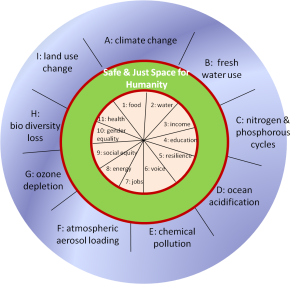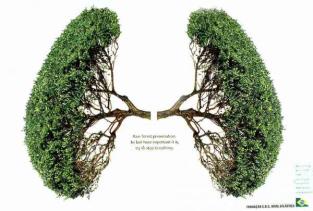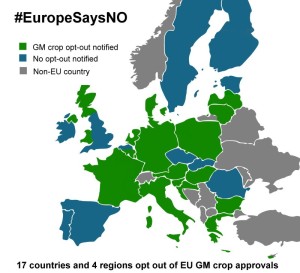NZFFA Member Blogs
Member Blogs
-
Brian Cox's Blog
-
Chris Perley's Blog
-
Dean Satchell's blog
-
Denis Hocking's blog
-
Dennis Neilson's blog
-
Eric Cairn's Blog
-
Grant Hunters blog
-
Hamish Levack's Blog
-
Howard Moore's blog
-
Ian Brennon's blog
-
Ian Brown's Blog
-
Jeff Tombleson's blog
-
John Ellegard's blog
-
John Fairweather's blog
-
John Purey-Cust Ponders
-
Murray Grant's Blog
-
Nick Ledgard's Blog
-
Rik Deaton's Blog
-
Roger May's Blog
-
School of Forestry blog
-
Shem Kerr's blog
-
Vaughan Kearns blog
-
Wink Sutton's Blog
Recent blogs:
The Trans-Pacific ‘Partnership’ and Our Environment
Chris Perley's BlogFriday, October 30, 2015
The very idea that the Trans-Pacific  ‘Partnership’ (TPP) is good for the environment (Craig Foss MP Hawke’s Bay Today 26th October) is arrant nonsense. More than that, it is wilful distortion. While Mr Foss might have the privilege of knowing what clauses say what in this secret deal ‘of the oligarchy for the oligarchy’, he obviously
‘Partnership’ (TPP) is good for the environment (Craig Foss MP Hawke’s Bay Today 26th October) is arrant nonsense. More than that, it is wilful distortion. While Mr Foss might have the privilege of knowing what clauses say what in this secret deal ‘of the oligarchy for the oligarchy’, he obviously
doesn’t understand the environment, let alone the economics and ethics relating to natural systems.
It’s more of the same “the market will provide” idiocy. It is a wonder “trickle down” wasn’t mentioned, or “there is no alternative”, or “in our [mythical] meritocracy, the large obviously have more merit” (in other words, “might is right”).
 Mr Foss thinks that certification schemes will ensure
Mr Foss thinks that certification schemes will ensure
environmental protection. They won’t. That is because there are two types of commerce – the small-c local, ethical enterprises connected to place and community, and the big-C unethical and disconnected commerce (with owners and managers living on effectively another planet). Mr Foss has dealt mainly with the latter interplanetary variety, who wear smart Italian suits in London offices. 
It is the unethical and the disconnected big-C Commerce that the TPP most serves – after all, they are the ones around the table while the people are excluded. The actions of the big-C boys will be to the detriment of the small-c local family enterprises.
Think Walmart versus the local clothing store. One of the biggest cons of the age is to get small-c local enterprise to associate themselves with  undifferentiated ‘business’, inclusive of the mega-corporates. John Key is a master of that con. Trying to analyse commerce without understanding power is like trying to analyse politics without considering money. When you don’t make the distinction, it favours the big boys.
undifferentiated ‘business’, inclusive of the mega-corporates. John Key is a master of that con. Trying to analyse commerce without understanding power is like trying to analyse politics without considering money. When you don’t make the distinction, it favours the big boys.
The local ‘small-c’ commerce generally contributes to our place; moral philosopher Adam Smith’s village economy. The latter big-C commerce generally extracts from place and privatises gain. They are the modern-day colonising powers. They form oligarchies and unethically influence government policies. They take while promising low-paying ‘jobs’ and ‘GDP growth’ (which goes to their  own pockets); the blankets and trinkets of 21st Century colonial life. Adam Smith recognised the dangers of powerful commercial interests, and warned us against their influence.
own pockets); the blankets and trinkets of 21st Century colonial life. Adam Smith recognised the dangers of powerful commercial interests, and warned us against their influence.
Mr Foss’ claims that certification schemes indicate a positive of the TPP lump all commerce – robber baron and local entrepreneur – into the same box. Certification schemes like the Forestry Stewardship Council (FSC) were accepted by small-c companies who were ethically linked to their land and community, and who recognised that, because they were smaller, labelling was essential to encourage the market position of their produce.  They focused on maintaining higher prices against the power of the big-C Mega-. However, the FSC was an unpopular ‘thin-end-of-the-wedge’ initiative to the Mega-Corporates who focus on low-cost bulk throughput systems and dominance of small-c enterprise by market share and coercion.
They focused on maintaining higher prices against the power of the big-C Mega-. However, the FSC was an unpopular ‘thin-end-of-the-wedge’ initiative to the Mega-Corporates who focus on low-cost bulk throughput systems and dominance of small-c enterprise by market share and coercion.
Mr Foss is also confused about what the environment is. It is not just our biodiversity; it is our life-support system; our water systems that are being mined, our soil systems that are being degraded; the use and source of energy; our climate and carbon cycles; our nutrient cycles; our acidifying ocean; the services that are gifted to us. Perhaps he is repeating George Bush Sr’s mistake of equating ‘the environment’ with a country club golf course.
environment is. It is not just our biodiversity; it is our life-support system; our water systems that are being mined, our soil systems that are being degraded; the use and source of energy; our climate and carbon cycles; our nutrient cycles; our acidifying ocean; the services that are gifted to us. Perhaps he is repeating George Bush Sr’s mistake of equating ‘the environment’ with a country club golf course.
He should research the Planetary Boundaries work available at the Stockholm Institute before he again suggests that a commercial deal, one of whose aims is to commoditise life within a Mega-Corporate trade system, will do any good for the environment. We are running close to many boundaries, and exceeding some, and the root cause of much of it is short-term greed supported by powerful big-C interests. Exactly the type of people who have access to the TPP details while we, the people (including small-c local family enterprises), do not.
 Mr Foss also doesn’t understand natural system economics.
Mr Foss also doesn’t understand natural system economics.  The environment is not a set of ‘resources’ (A word that involves; “the symbolic enslavement of nature“), it is our functioning life support system. Think dynamic ‘verbs’ to keep flowing, not static ‘nouns’ to weigh, price and load on a lorry. That does not preclude commerce or community, but it does require that short-term greed and power be held in check.
The environment is not a set of ‘resources’ (A word that involves; “the symbolic enslavement of nature“), it is our functioning life support system. Think dynamic ‘verbs’ to keep flowing, not static ‘nouns’ to weigh, price and load on a lorry. That does not preclude commerce or community, but it does require that short-term greed and power be held in check.
I once spat out my coffee when a neo-liberal economist spoke with the conviction that only a cliché can provide: “the free market provides the best environmental solution.” It is truly amazing that they taught econom ists thatrank rubbish. If you are of a financial and big-C Corporate mind, without connection or ethical concern for the future of your local place or your local community, then the financially ‘rational’ thing to do is to pillage and move on. Those educated in forest and soil management know this. Finance will trump ethics and our children’s future if we let it.
ists thatrank rubbish. If you are of a financial and big-C Corporate mind, without connection or ethical concern for the future of your local place or your local community, then the financially ‘rational’ thing to do is to pillage and move on. Those educated in forest and soil management know this. Finance will trump ethics and our children’s future if we let it.
The ‘rational’ strategy, if short-term profit is your creed, is to take ownership of the public common for your own ends, privatising the gains to be made and socialise the costs, and to make deals with short-term commissions without a moral thought. This is the short road to personal wealth. It is that road that transforms natural value to liquid money, and transfers that money to a few. It does not create common-wealth, it involves the privatisation of that wealth.
If you have that short-term selfish mindset, then you always, always, liquidate natural systems that cycle slowly – like forests, soils, water and fisheries. Neo-liberal economics doesn’t just tolerate that mindset, it champions it.
Destroy the complex forest and convert it to wasteland or a plantation, driftnet the ocean, hoodwink the Solomon Island chief out of his valuable forest for hollow promises of a soon-to-be-rotting jetty and some unsealed eroding tracks.

Children from the Lobi community sit on a recently felled tree. In the last ten years many foreign logging companies have moved into the Solomon Islands. The current level of official production of 830,000 cubic metres, mainly whole log exports, is running at nearly three times the sustainable level. With more than 60% of government revenue coming from tariffs on log exports, the country’s economy seems locked into a spiral of resource depletion and unsustainable development
Mr Foss seems blind to history and the implications of short-term personal greed by people who live far removed from the consequences of their actions. Mining of long-cycling natural systems (soils, fisheries, forests, wetlands, etc.) is our own New Zealand history, and it is accelerating today as the greedy and powerful robber barons have reasserted their political influence around the world. This practice was recorded as far back as the Epic of Gilgamesh (4100 BP) for heaven’s sake. Plato wrote about it (2450 BP). The smoky skies of South East Asia are testament to that continuing Big Commerce way.
So-called ‘trade’ deals like the TPP that focus on the protection of the profits of Mega-Corporations will not change that extractive thinking that commoditises life, including human life. It will only reinforce it.
 The logical consequence of this commoditisation trend is the rationalisation of the worst of crimes – the treatment people as ‘things’. Simply as a cost. Or a ‘resource’; soap perhaps. This has happened in our past, with cliché-spouting functionaries focusing on the banal scheduling on the ‘rational’ machine of trains and camps.
The logical consequence of this commoditisation trend is the rationalisation of the worst of crimes – the treatment people as ‘things’. Simply as a cost. Or a ‘resource’; soap perhaps. This has happened in our past, with cliché-spouting functionaries focusing on the banal scheduling on the ‘rational’ machine of trains and camps.
This government seems intent on looking after the big-C Corporates. If it was supportive of small-c local commerce it would be encouraging high-value enterprise instead of commodities. It would be wary of any big-C multinationals and their paid lobbyists. It would make illegal the buying of politicians.
the big-C Corporates. If it was supportive of small-c local commerce it would be encouraging high-value enterprise instead of commodities. It would be wary of any big-C multinationals and their paid lobbyists. It would make illegal the buying of politicians.
It would follow the majority of European countries that have banned GMO trade in order to protect our environment and our economy.
If a government held democracy dear to its heart, it would not accept the right of Mega- Corporates to sue our democracy. It would protect the principles of democracy whereby any enterprise must operates within the laws as decided by we, the people. It would never countenance the reverse – that we, the people, Te Tangata, would have to live according to the laws as defined by Mega-Corporates.
Corporates to sue our democracy. It would protect the principles of democracy whereby any enterprise must operates within the laws as decided by we, the people. It would never countenance the reverse – that we, the people, Te Tangata, would have to live according to the laws as defined by Mega-Corporates.
If we live by their approved laws, then that is not democracy; that is Oligarchy. Beyond the edge of oligarchy lies totalitarianism and tyranny.
If a government understood power, people and place then it would, at the very, very least, make open all these TPP clauses and conditions to which some of the most unethical big-C Corporate entities on this planet have access.
The fact that this Government has failed to do any of these things is a disgrace.
Mr Foss, your claims of environmental gain are empty spin serving unworthy ends.
Chris Perley
An edited version of this opinion piece was published in the Hawke’s Bay Today, 30th October 2015

Digging the Good Dirt on Soil Bugs
Denis Hocking's blogWednesday, October 07, 2015
Volunteers Wanted: Scion soil scientist Simeon Smaill is looking for volunteers to help with a series of trials he is running around the country. He is looking at the effect of different nursery practises on early tree performance in the forest.
Background: Simeon gave a very good background talk on this work to a small group of MDFFA members on Friday 15th, Sept. Much of the talk was on the all important interactions between trees and the mycorrhizal fungi that live in association with them, assisting in the uptake of key nutrients. Without appropriate mycorrhizal fungi most trees just fail to grow, yet very little consideration has been given to managing or protecting these key players in the nursery. There are also other microbes that affect stress responses, including drought.
There has been little change in nursery practise since the 1980s, when it was felt that they had the systems to meet customer specifications for seedlings regarding height, diameter and root development. But there has been little consideration of the effects of nursery practise on subsequent tree performance in the forest. And it is known that the fungicides and soluble fertilizers used, often heavily, in the nursery adversely affect the beneficial soil microbes.
There are five common species of mycorrhizal fungi found in nurseries, and although there are 20 or more other species that can "infect" radiate pine, Simeon says getting them into nursery stock will be difficult without a clear niche being available. Fungi not only have to battle fungicides and fertilizer, it is also open warfare between different fungi. Unfortunately the best mycorrhizal fungi are also the most sensitive to fungicides and fertilizers and hence the logic in assessing nursery practise effects on early forest performance. .
Simeon says there are four key areas being examined in nursery practise:
- Physical management: This includes stocking rates in the seedling beds and its effects on root development, nutrient levels, topping and undercutting of seedlings.
- Microbial interactions including the mycorrhizal and growth promoting microbes that improve nutrient uptake, stress tolerance and growth rates. There is also the possibility of using "friendly" microbes, notably Trichoderma spp., to compete with pathogens.
- Chemical management including fertilizers and fungicides, but also the possibilities of using plant hormones to produce fatter rather than taller seedlings.
- Tree genetics. Everything is treated the same in the nursery but different genotypes do vary in growth rate, stress responses and also their ability to recruit useful microbes.
Early work has already shown that the effects of nursery practise can influence forest performance for at least five years, covering the vital period when seedlings are competing with weeds.
Simeon is now looking for a wider range of different sites to conduct trials starting in 2016. These would only involve 180 trees, (3 replicates of 3 treatments, with 20 trees in each replicate) and Simeon wants as wide a range of soils, climate and other conditions as possible. Interested planters can contact Simeon at simeon.smaill@scionresearch.com, 03 364 2949 ext. 7833, or 0212 666 305. Alternatively contact Denis Hocking on jdhocking@xtra.co.nz or 06 322 1254
Further to this item, it is worth noting that our nurseryman and MDFFA Vice-President, Patrick Murray is to the fore in this work. He is one of the new generation of nurserymen working on the next step, not least his work on redesigning seeder drums.
Soil microbe/plant interactions are becoming a hot topic internationally and there is a very good, readable, review in a recent copy of Science, (vol 349, pp. 680-83, 14/8/2015). There is a lot more going on down there than I ever realised. If you would like a copy contact me.
Denis Hocking
Disclaimer: Personal views expressed in this blog are those of the writers and do not necessarily represent those of the NZ Farm Forestry Association.

 Farm Forestry New Zealand
Farm Forestry New Zealand